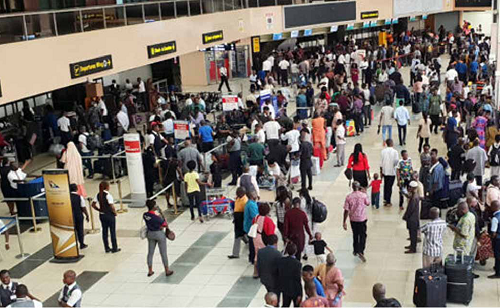Ola Akinwunmi
Nigeria emerged as a leading contributor to non-EU+ migration to the United Kingdom in 2024, with 52,000 citizens relocating despite a historic 50% decline in the UK’s overall net migration, according to a report released by the Office for National Statistics (ONS).
The ONS data reveals that Nigerian migrants accounted for a significant portion of non-EU+ arrivals, with 27,000 arriving on work visas and 22,000 on study visas, while 3,000 entered under other categories such as family or humanitarian routes.
Nigeria joined India, Pakistan, and China as one of the top four non-EU+ migration sources, reflecting a continued demand for skilled labor and education opportunities in the UK.
Despite this influx, the UK’s net migration plummeted to 431,000 in 2024—down from 860,000 the previous year—marking the sharpest annual decline since the pandemic. The drop was driven by stricter visa policies, post-pandemic emigration, and reduced dependent visas, particularly for students and care workers
The report highlights that 83% of non-EU+ migrants, including Nigerians, were of working age (16–64 years), with a near-equal gender split (52% male, 48% female). Only 1% were over 65, underscoring the UK’s appeal to younger demographics seeking employment or education.
The UK’s migration downturn follows sweeping visa reforms introduced in early 2024, including higher salary thresholds for skilled workers (£38,700), bans on most international students bringing dependents, and tightened family visa rules.These changes contributed to a 49% drop in work-related immigration and an 86% collapse in study dependents.
Additionally, many individuals who migrated during or after the COVID-19 pandemic—particularly students—have returned home as travel restrictions eased and visas expired. Emigration surged by 11%, reaching 517,000, the highest since 2017.
The data arrives amid mounting pressure on Prime Minister Keir Starmer’s Labour government to further curb migration. Reform UK, a right-wing opposition party, has pushed for stricter controls, while critics warn that reduced labor inflows could exacerbate skills shortages in sectors like healthcare.
With the UK set to introduce even tougher residency requirements and shorten post-study work visas, analysts predict continued volatility in migration trends. For Nigeria, however, the lure of UK opportunities persists, even as rejection rates for visas climb and fees rise.

